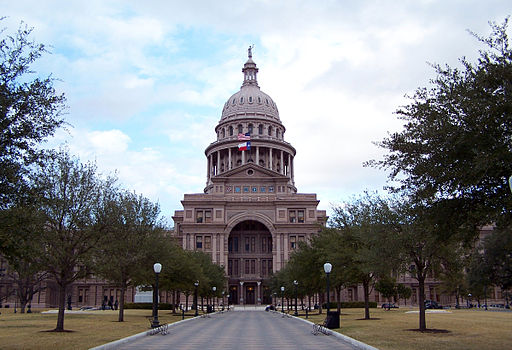The Texas State Legislature has voted to send the first constitutional amendment to voters for Nov. 4, 2025. House Joint Resolution 4 (HJR 4) would amend the Texas Constitution to prohibit the state legislature from enacting an occupation tax on registered securities market operators or a tax on securities transactions.
A registered securities market operator is defined in the amendment as one of the following entities registered and regulated by the United States Securities and Exchange Commission or the United States Commodity Futures Trading Commission:
- a self-regulatory organization, financial institution, broker, dealer, clearing agency, or transfer agent;
- a national securities exchange;
- an alternative trading system, board of trade, commodity pool operator, derivatives clearing organization, electronic trading facility, or organized exchange; or
- a trade reporting facility.
In the author’s statement of intent included with HJR 4, it says, “During the COVID-19 pandemic, New York and New Jersey proposed financial transaction taxes, prompting concerns about retirement investments and causing New York and Nasdaq to consider relocating to Texas. With many individuals relying on 401(k)s, IRAs, and pensions for retirement, concerns arose that such a tax could reduce returns and hinder savings. Though both states abandoned the proposals, the risk remains.”
In January 2025, a group led by TXSE CEO James Lee and financed by institutional investors, including Charles Schwab, Fortress, BlackRock, and Citadel Securities, announced plans to file and begin operating a national stock exchange headquartered in Dallas, Texas, beginning in 2026. Representatives from the Texas Stock Exchange registered in support of HJR 4 during the legislative process.
The True Texas Project registered in opposition to the amendment. The House Ways and Means Committee summarized opponents’ arguments against the amendment saying, “HJR 4 would make it harder for future legislatures to make tax policy by including a prohibition on securities transaction taxes in the state constitution. The state may experience an economic downturn and could benefit from having a securities transaction or occupation tax to raise revenues at that time.”
A two-thirds vote by both chambers of the state legislature is required to place a constitutional amendment on the ballot in Texas. HJR 4 passed in the House by a vote of 111 to 31 with eight absent or not voting on April 1. It passed in the Senate by a vote of 28-3 on April 29.
As of April 30, 268 constitutional amendments were filed in the state legislature for the 2025 ballot. At least one chamber has passed 26 amendments, meaning the resolutions are halfway to being placed on the ballot.
The state legislature convenes its regular session in odd-numbered years, so the majority of Texas ballot measures have been featured on odd-numbered year ballots. Since the adoption of the Texas Constitution in 1876, Texans have decided on 711 ballot measures, all constitutional amendments—approving 530 and defeating 181 measures.
Additional reading:



